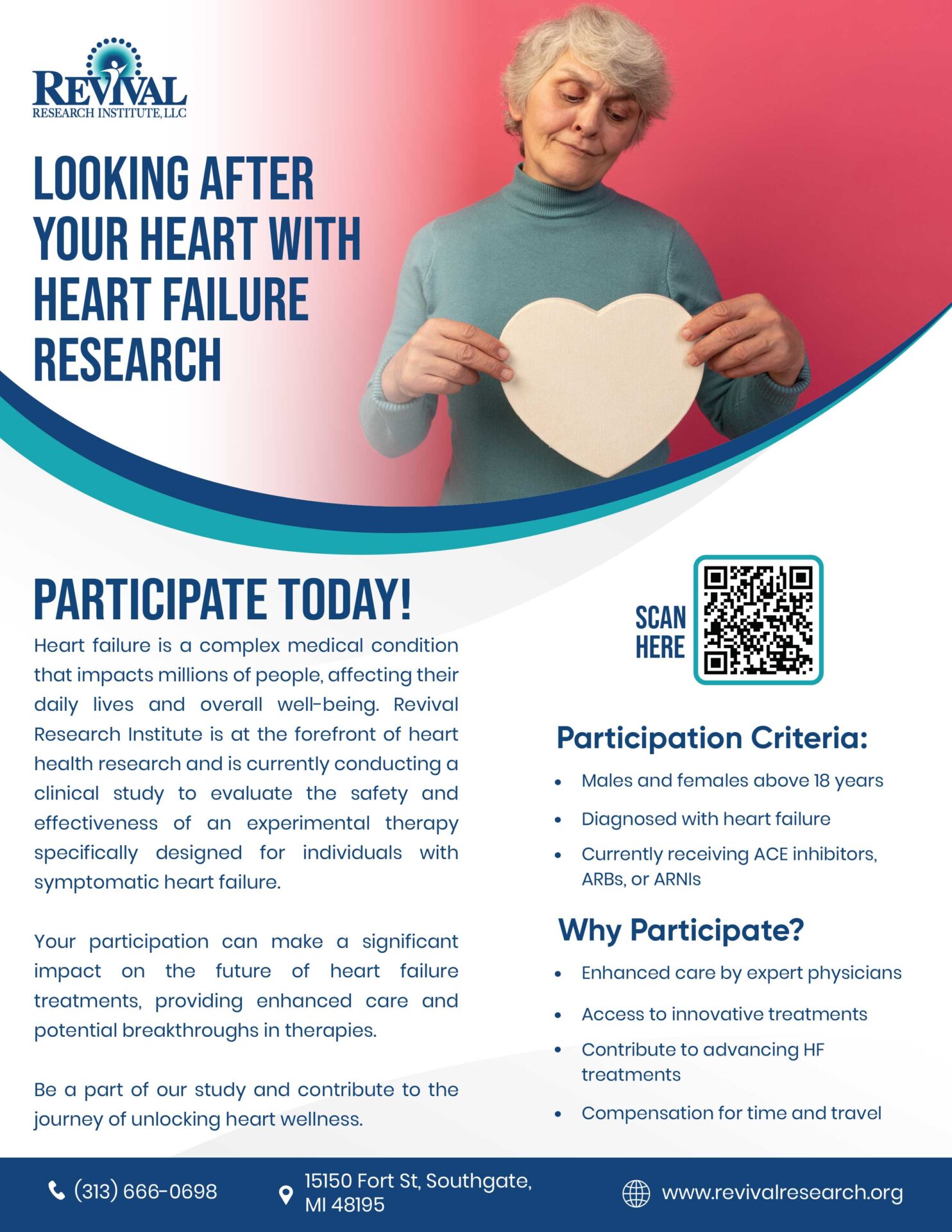Heart Failure Clinical Trials in Michigan Are Now Enrolling!
Heart failure is a complex clinical syndrome causing structural or functional impairment of ventricular filling or emptying, leading to the heart’s inability to meet the body’s oxygenated blood needs. It does not literally mean the heart has failed but rather that it is not pumping blood as well as it should.
Revival Research Institute is conducting heart failure clinical trials in Michigan. This clinical trial aims to study the safety and efficacy of an investigational therapy for heart failure, that could potentially change the way heart failure is managed.
Eligibility criteria for heart failure clinical trials in Michigan:
- Males and females above 18 years
- Diagnosed with heart failure
- Currently receiving ACE inhibitors, ARBs, or ARNIs
If you are interested in participating in the clinical trial or know someone who is, please feel free to get in touch with us by filling out the form. Someone from the study team will call you to complete the screening process. Your well-being and health will be our main priority throughout the duration of the study.
*Participation in clinical trials is free of cost to you and your health insurance.
**Filling the form does not mean that you must join the study or that you will be able to participate.



